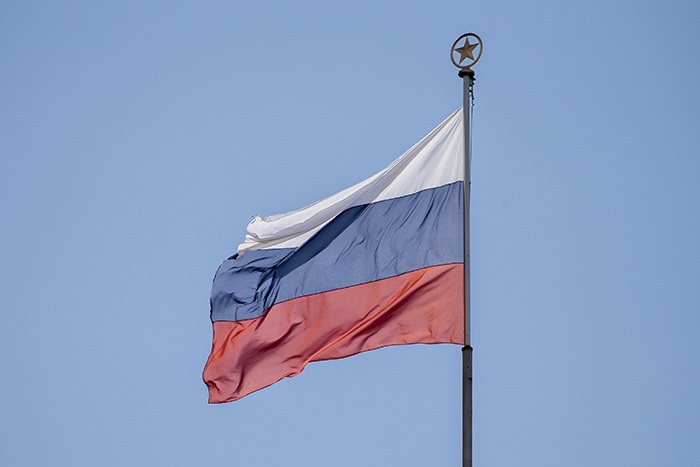Russian Ambassador addresses AIIA Queensland

On Thursday 14 September, AIIA Queensland was addressed by His Excellency, Mr Grigory Logvinov, Ambassador of the Russian Federation to the Commonwealth of Australia, who discussed Russia’s perspective on current global issues and the bilateral relationship between Australia and Russia.
Mr Logvinov began with a discussion of the current state of relations between Russia and the United States. Despite initial hopes that relations might improve under the Trump Administration, the opposite has occurred. The Ambassador went on to explain that Moscow was not optimistic regarding an improvement in this “deteriorating” relationship in the near future.
He emphasised the expulsion of Russian diplomats from the US in March of this year as a particularly low-point in US-Russia relations, an action that he stated was “100 per cent a violation of international law” under the Vienna Convention on Diplomatic Relations. He went on to state that this development was particularly troubling as diplomats were often the last line of defence before war, and although open war between the Russia and the United States remains exceedingly unlikely, a return to “cold war’’ was entirely possible.
Despite these developments, Mr Logvinov said that Russia remained open to increased cooperation with the US on a number of issues – although the US “regrettably, is not”. He named issues such as non-proliferation and counter-terrorism as areas in which the United States and Russia have previously cooperated, although progress on these issues had stalled following the cooling of relations.
Turning to Asia, the Ambassador stated that North Korea and its nuclear program was an especially concerning issue for the region and for Russia. North Korea’s desire to acquire nuclear arms constituted a threat to “the global order established at the end of World War II”, and threatened to destabilise the balance of power in the region. He discussed the difficulty of dealing with the North Korean government, whose actions he believed gave the United States a pretext to continue to place new weapons systems in the region. He expressed serious concern over the growing tensions, given that neither the United States nor North Korea seemed willing to back down.
On the issue of Syria, Mr Logvinov characterised the ongoing civil war as “a humanitarian disaster”, with the majority of the country reduced “to rubble”. He pointed to the fact that ISIS, a breakaway from Al-Qaeda in Iraq, was in fact a product of America’s interventions in the Middle East. He further stated that Russia remained unconvinced that the western coalition was truly fighting ISIS, and might be attempting to provoke further confrontation between Sunni and Shia Muslims.
The Ambassador finished the evening by discussing the bilateral relationship between Australia and Russia – a relationship which marks its 75th anniversary in October of this year. He stated that when relations began in 1942, the then Soviet Union was suffering one of the most difficult years in its history. He pointed out that several hundred Australian sailors served in the Arctic convoys which supplied Russia during World War II, and that over 1000 Russians served as part of the ANZAC forces during the First World War – highlighting a joint history between our nations that is not widely known.
Current relations were, in His Excellency’s words, “not great” – though they remained “pragmatic”. Although open political dialogue between Australia and Russia was unlikely, cultural, technological, and economic exchanges between Russia and Australia continued, with the Ambassador providing examples of numerous economic forums involving Russian companies and cultural visits such as those by the Bolshoi ballet to Australia. Ultimately, Australia-Russia relations were dependent on the “global context”, given our extensive obligations and traditional cooperation with the US.